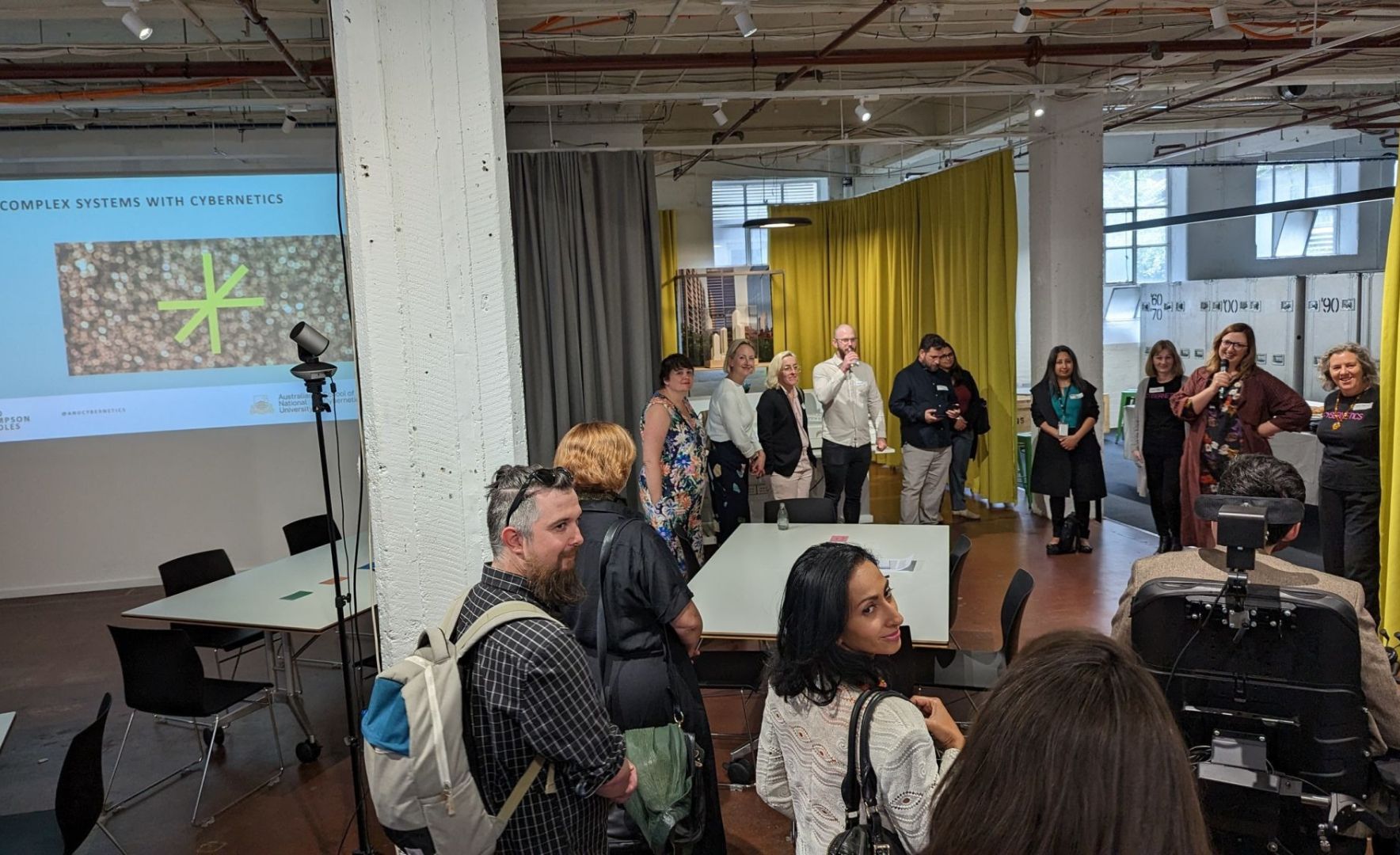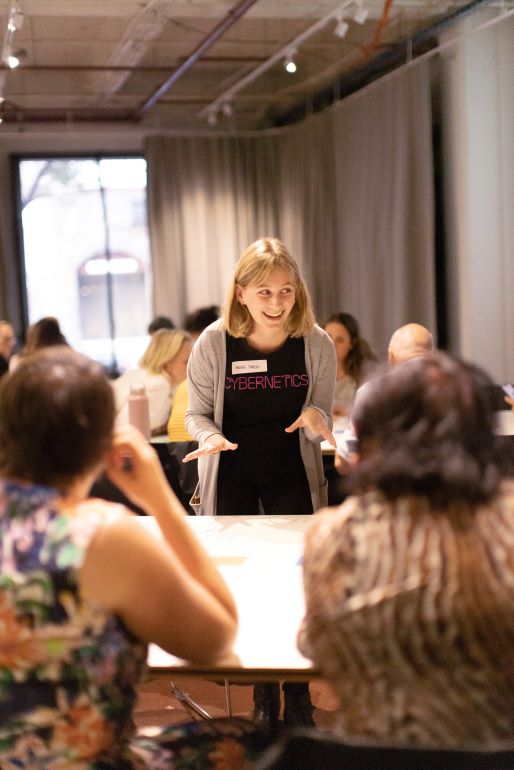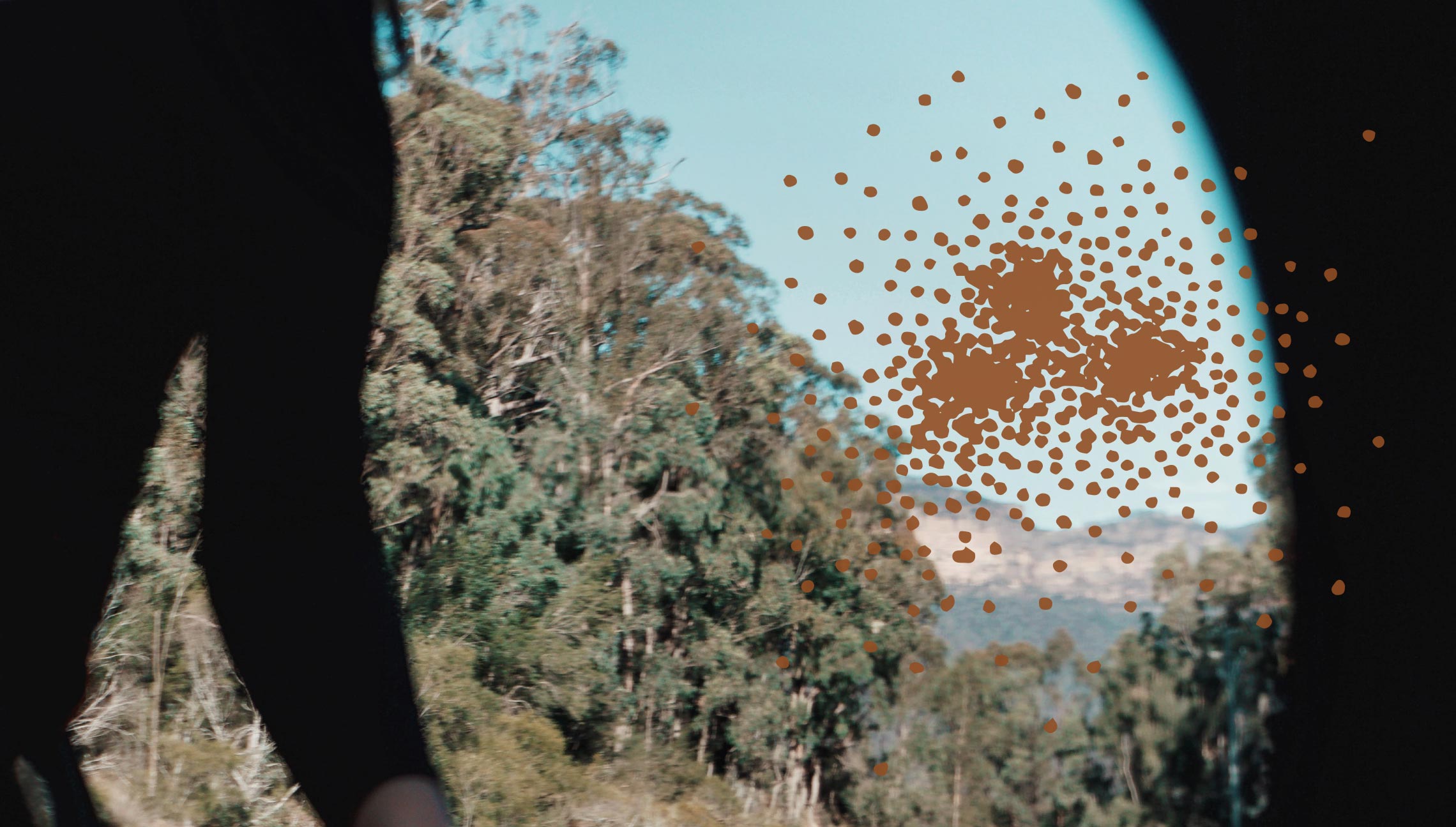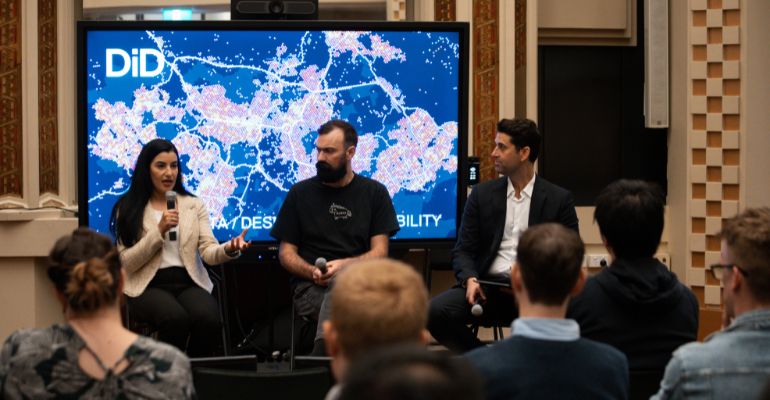Last month, ANU School of Cybernetics was invited to participate in the Data Informed Design conference in Melbourne presented by Place Intelligence. This two-day event brought together leading city shapers to consider the risks and opportunities of big data at a human scale.
Practitioners working across data, design, engineering and policy gathered for a full day in the RMIT Capitol Theatre to examine emerging tech, new processes, data science, and the beneficial impacts of data informed design and place based decision making.
Speakers from a range of disciplines considered the complexity, tensions, and the opportunities that emerge from the interface of technology and human interaction and how the practice of data informed design can create better outcomes for all.

A grounding in data#
First Nations consultant Kat Rodwell spoke of data as including what you see, hear, feel and touch. For her, these are the essential elements that ground you in Country.
Humanitech’s Ivana Jurko took the audience through its humanity-first approach to data moves at the speed of trust.
City of Melbourne’s lead architect Rob Adams spoke of the importance of data in bringing about social change. He advocated for the importance of old school data gathering, including observations, conversations and desire lines, to ensure systems for community feedback that help tell a collective story and bring about a transformational shift.
Sebastian Chan and Katherine Maher discussed the challenges for users to keep pace with the rapid technological changes shaping our world, and asked what it would take to upskill communities in democratic ways.

Cybernetics in data informed design#
On the second day of the conference, ANU School of Cybernetics hosted a networking lunch and sold-out workshop in the wonderful gallery space at Grimshaw Architects. Participants from a wide range of academic, policy, technology and civil society organisations came together to share insights and ideas over lunch and then learn about the fundamentals of cybernetics.
Led by Maia Gould, Hannah Simpson and Jackie Randles, participants were introduced to cybernetics as an important framework for communication and action in complex systems that involve humans, environments and technology.
When it comes to designing and making decisions with data, it’s easy to think of data in isolation. In reality, however, data exists within systems: complex and changing networks of people, technologies and environments. The workshop outlined a process for how we can better understand systems in order to steer them towards the outcomes that we want - outcomes that are safer, more sustainable and more responsible.
Through a series of activities relating to a fictitious case study, participants used a tool developed by the School of Cybernetics to delve deeper into the system surrounding data and how to observe the various components with a system. They then had the opportunity to apply cybernetic analysis to their own professional and personal projects.
Throughout the activities, participants experienced how a cybernetic approach can help us take a broader view and navigate complex systems that involve technology.
Many thanks to all those that participated in our workshop and to Place Intelligence Design for inviting the School to be part of the Data Informed Design Conference.

